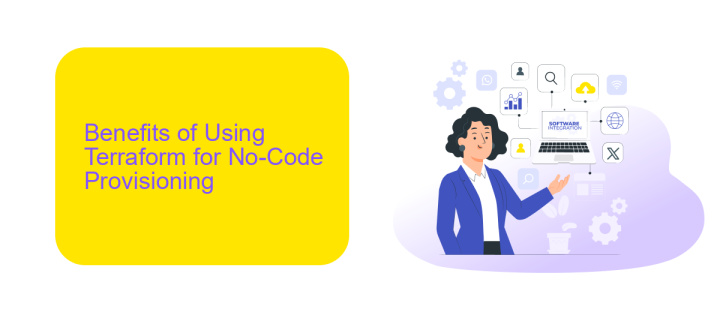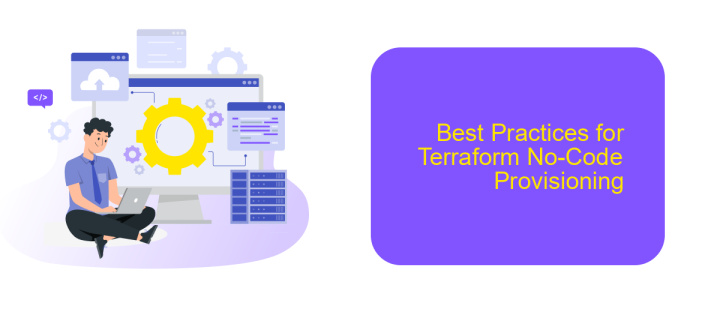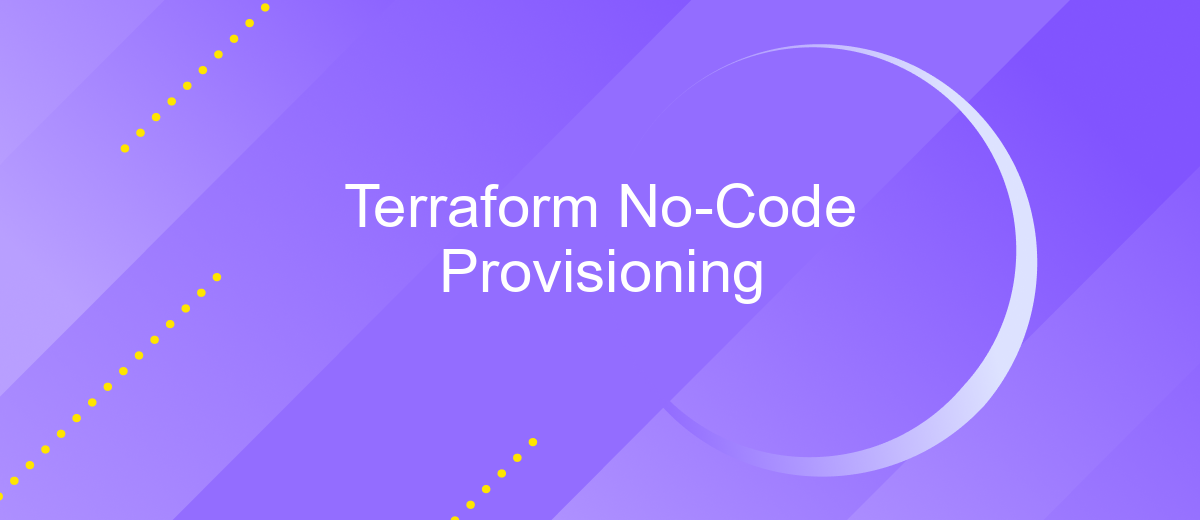Terraform No-Code Provisioning
Terraform No-Code Provisioning is revolutionizing the way organizations manage their infrastructure. By eliminating the need for complex coding, this approach simplifies the deployment and management of cloud resources. It empowers teams to create, modify, and version infrastructure using intuitive interfaces, making cloud management more accessible and efficient. Discover how Terraform No-Code Provisioning can streamline your operations and enhance productivity.
Introduction to Terraform and No-Code Provisioning
Terraform is an open-source infrastructure as code (IaC) tool that allows users to define and provision data center infrastructure using a high-level configuration language. It supports a variety of cloud providers, making it a versatile choice for managing infrastructure in a consistent and automated manner. By codifying your infrastructure, Terraform enables version control, collaboration, and automation, reducing the risk of human error.
- Simplifies infrastructure management
- Supports multiple cloud providers
- Enables version control and collaboration
- Automates provisioning and scaling
No-Code Provisioning takes the simplicity of Terraform a step further by allowing users to manage and deploy infrastructure without writing any code. This approach leverages intuitive interfaces and pre-built templates, making it accessible to non-developers. Tools like ApiX-Drive can be integrated to automate workflows and connect various services seamlessly, enhancing the overall efficiency and ease of managing infrastructure.
Benefits of Using Terraform for No-Code Provisioning

Using Terraform for no-code provisioning offers significant benefits, particularly in streamlining infrastructure management. By leveraging Terraform's declarative configuration language, users can define infrastructure as code, which simplifies the process of setting up and managing resources across various cloud providers. This approach reduces human error, ensures consistency, and enables version control, making it easier to track and revert changes when necessary.
Furthermore, Terraform's extensive ecosystem of providers and modules allows for seamless integration with other services, enhancing its functionality. For instance, integrating with ApiX-Drive can automate data flows between different applications, further reducing manual intervention and boosting productivity. The no-code aspect of Terraform means that even those without deep technical expertise can provision and manage infrastructure efficiently, democratizing access to powerful cloud resources and fostering a more inclusive environment for innovation.
Getting Started with Terraform No-Code Provisioning

Terraform No-Code Provisioning simplifies the infrastructure provisioning process, making it accessible even for those without deep technical expertise. With this approach, you can quickly set up and manage cloud resources using a user-friendly interface, eliminating the need for writing complex code.
- Sign up for a Terraform account and log in to the dashboard.
- Create a new project and select the cloud provider (e.g., AWS, Azure, GCP).
- Use the visual interface to drag and drop resources, such as virtual machines, databases, and networking components.
- Configure the necessary parameters for each resource, ensuring they meet your requirements.
- Review and validate the configuration to detect any potential issues.
- Deploy the infrastructure with a single click and monitor the provisioning process in real-time.
For enhanced integration capabilities, consider using ApiX-Drive, which allows you to connect various applications and automate workflows seamlessly. This service can help streamline your Terraform provisioning by integrating with other tools and services you use, ensuring a smooth and efficient setup process.
Best Practices for Terraform No-Code Provisioning

Implementing best practices for Terraform No-Code Provisioning ensures efficient and secure infrastructure management. Start by defining clear and concise infrastructure-as-code (IaC) templates to maintain consistency across environments. This approach minimizes errors and simplifies the provisioning process.
Next, leverage version control systems like Git to manage your Terraform configurations. This practice enables collaboration among team members and provides a history of changes, making it easier to track and revert modifications if needed. Regularly update and review your Terraform modules to ensure they align with the latest best practices and security guidelines.
- Use consistent naming conventions for resources.
- Implement tagging for better resource management.
- Enable state locking to prevent concurrent modifications.
- Regularly back up your Terraform state files.
- Integrate with ApiX-Drive for automated workflow management.
Finally, conduct periodic audits and security assessments of your infrastructure to identify and mitigate potential vulnerabilities. By adhering to these best practices, you can optimize your Terraform No-Code Provisioning process, ensuring a robust and scalable infrastructure.


Conclusion and Future of Terraform No-Code Provisioning
In conclusion, Terraform No-Code Provisioning represents a significant advancement in simplifying infrastructure management. By enabling users to deploy and manage resources without writing code, it democratizes access to powerful infrastructure-as-code capabilities. This approach reduces the learning curve and allows teams to focus on strategic tasks rather than getting bogged down in the complexities of scripting and configuration.
Looking ahead, the future of Terraform No-Code Provisioning is promising. As more integrations become available, services like ApiX-Drive will play a crucial role in streamlining these processes. ApiX-Drive, with its ability to connect various applications seamlessly, will enhance the automation capabilities of Terraform, making it even easier to manage complex infrastructures. Continuous improvements and community contributions will further expand its functionality, making no-code provisioning an indispensable tool for modern DevOps practices.
FAQ
What is Terraform No-Code Provisioning?
How does Terraform No-Code Provisioning differ from traditional Terraform?
Can I integrate Terraform No-Code Provisioning with other automation services?
Is Terraform No-Code Provisioning suitable for large-scale infrastructure?
What are the benefits of using Terraform No-Code Provisioning?
Apix-Drive is a simple and efficient system connector that will help you automate routine tasks and optimize business processes. You can save time and money, direct these resources to more important purposes. Test ApiX-Drive and make sure that this tool will relieve your employees and after 5 minutes of settings your business will start working faster.

